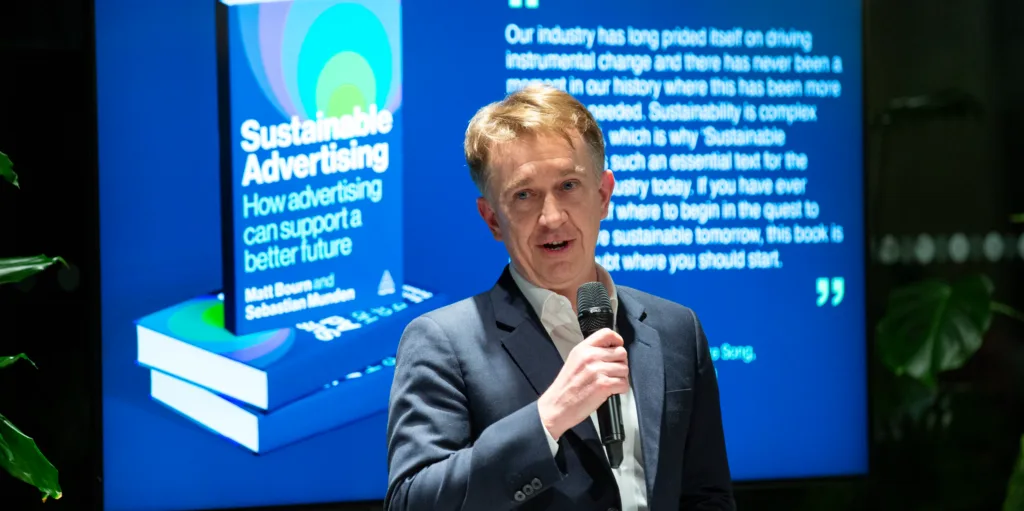Earlier this month, a new book, Sustainable Advertising – How advertising can support a better future, was published. Written by Sebastian Munden, Chair of Ad Net Zero and Matt Bourn, Director of Communications at the Advertising Association, the book provides an action plan for agencies, brands, media owners, tech platforms and individuals in a global effort to speed up decarbonisation and the transition to a more sustainable way of life.
New Digital Age recently spoke to Bourn to find out more…
What was your motivation for writing the book?
We were commissioned to produce the book in January 2023, and wrote it over the course of the following six months. By the beginning of 2024, the big question became ‘how do we make sure climate change and positive climate action remain high on the agenda for advertising?’.
We did an analysis at the beginning of this year, looking at 25 articles listing industry forecasts and trends for the ad industry in 2024. When we aggregated the results, climate change wasn’t mentioned in the top five trends, yet it remains the biggest issue facing us all. Hopefully, the book can be something useful that helps to drive the industry conversation forward again this year.
What can readers expect from the book?
There are 16 chapters in total. In the first, we present a clear manifesto, describing an ad industry that is sustainable in the way that ads are produced and distributed and, also, in the way that it promotes sustainable products, services and behaviours.
We go on to explain what advertising activity can be described as ‘greenwashing’ and how to avoid it. We then look at the importance of science-based targets and how to reduce the environmental impacts in the production and activation of your media plans.
We consider the ad industry’s role in encouraging the big behaviour changes needed globally from a climate change perspective, such as changes in transport and travel choices, changes in meat consumption. The behaviour science suggests that we shouldn’t be frightening people with scary climate change messages, as this can produce an ‘ostrich effect’ where people bury their heads in the sand. Instead, we should be using our skills to positively frame the many benefits associated with sustainable products and services for consumers and their families, without necessarily even mentioning sustainability.
Does this require a new mindset from the global advertising industry?
In the 20th century, a business would approach an ad agency and say, “I have something shiny to sell, can you help me sell it?” and the agency would say, “Of course, that’s what we do!” Now, in the 21st century, the ad agency has a duty to say: “OK, it might be shiny, but is it better for the planet that this is sold?” Because if the answer is no, I might struggle to sell this.”
We need to help brands recognise the growing customer demand for more sustainable options, that being more sustainable is a competitive advantage. We need to help them prepare for regulatory issues around unsustainable products as well as the risk of strong competition from sustainable alternatives. Whatever the sector, the ad community has a key role to support in accelerating the shift to more sustainable versions of what we have at the moment and, by doing so, shifting our economy to a more sustainable model based on circular consumption.
Sustainable Advertising is out now and you can order a copy from Kogan Page.
Apply the code ADNETZERO for a 20% discount.









